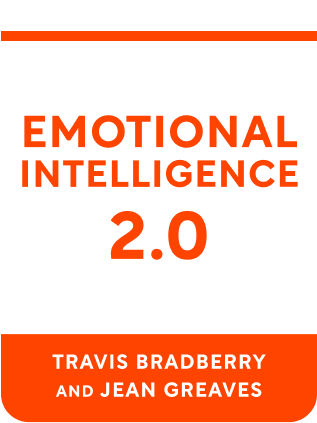

This article is an excerpt from the Shortform book guide to "Emotional Intelligence 2.0" by Travis Bradberry and Jean Greaves. Shortform has the world's best summaries and analyses of books you should be reading.
Like this article? Sign up for a free trial here .
What is emotional self-control? Is it a matter of temperament? Or can you improve it through practice?
Emotional self-control is the ability to manage difficult emotions, thoughts, and impulses, preventing them from spilling over into your behavior. In other words, it is the ability to think before you act.
Read more about emotional self-control and what you can do to develop it.
What Is Emotional Self-Control?
Emotional self-control is the ability to use your self-awareness to manage your emotions and stay in control of your behavior.
People with high-levels of emotional self-control:
- Control reactive behavior
- Do not allow their emotions to dictate their decisions
- Find peace with uncertainty
- Navigate complex situations patiently
- See projects through to the end regardless of frustration
- Focus on long-term development
Why You Need It
| When Emotional Self-Control is Present | When Emotional Self-Control is Absent | |
| Confrontation | You remain calm during adversarial or heated situations regardless of your personal feelings. | You allow your emotions to get the best of you and say insensitive or offensive things in the heat of the moment. |
| Reactive Behavior | You take time to find the best long-term solutions instead of making decisions based on emotional reactions. | You make decisions based upon your immediate reaction—even if your solution is not the most effective. |
| Flexibility | You embrace feedback by putting insecurity aside and working to improve or adjust your input. | When given feedback, you get stuck in your insecurity and grow defensive. |
Tactics to Develop Emotional Self-Control
Tactic #1: Focus on your breath. Your brain requires oxygen to function properly. Especially when stressed, people don’t breathe deeply enough, robbing the brain of valuable oxygen. When the brain lacks oxygen, it prioritizes basic needs (such as touch or sight) over complex processes (such as thought or emotion). When you take deep breaths, your rational brain engages and your body calms down.
Tactic #2: Develop a reason vs. emotion list. To make decisions clearer, make a two-column list. On one side, list what your emotional brain wants you to do, and, on the other, list what your rational brain wants you to do. Once you complete your list, compare the two sides and ask yourself two questions:
- Where is emotion warping my perspective?
- Where is rationality ignoring key information from my emotions?
Tactic #3: Take time before you react. If you respond to emotionally charged situations too quickly, your feelings become the driving force behind your words, and, often, lead you to say or do things that don’t align with your intentions. Instead, step away from the situation before responding. This gives you a clearer perspective on the situation and helps you make logical choices instead of emotional ones.
Tactic #4: Sleep better. Most people don’t sleep effectively, denying their brain a full recharge. Self-management requires focus, energy, and clarity—all of which rely on the brain working as efficiently as possible. To get restful sleep, turn off your electronics two hours before bed and only use your bed for sleeping.
Tactic #5: Schedule time to exercise. Exercise increases blood flow and overall fitness. It releases chemicals into your brain that help recharge your mental battery and strengthen areas of your brain that correlate to decision-making, rationality, and organization. Schedule specific time to commit to some form of physical activity and stick to it. Ideally, these activities should be active and vigorous, but any form of exercise will yield results.
Tactic #6: Publicize your goals. When creating goals for yourself, have other people hold you accountable. It’s much easier to abandon your goals when no one else knows about them. When you publicize your goals, the people around you will watch after you and help you make decisions to get you to achieve your objective.
For example, you’re trying to start a diet, but you had a stressful day and don’t want to cook. Ordering a pizza is tempting. If no one holds you accountable, there’s a good chance you’ll dial your local pizza joint. However, if someone at home knows about your diet, they can help keep you from making choices that disrupt your current goals.
Tactic #7: Keep your “self-talk” positive. “Self-talk” is your inner voice and has a major impact on your emotional state. If you keep your self-talk positive, it can get you through challenges and help support you throughout your day. However, if you let your self-talk become negative, it can ruin a good mood and quickly make your day miserable.

———End of Preview———
Like what you just read? Read the rest of the world's best book summary and analysis of Travis Bradberry and Jean Greaves's "Emotional Intelligence 2.0" at Shortform .
Here's what you'll find in our full Emotional Intelligence 2.0 summary :
- What emotional intelligence is and why it's essential for your workplace success
- The 4 reasons you need to work on your EQ
- How you can use EQ to better manage relationships






